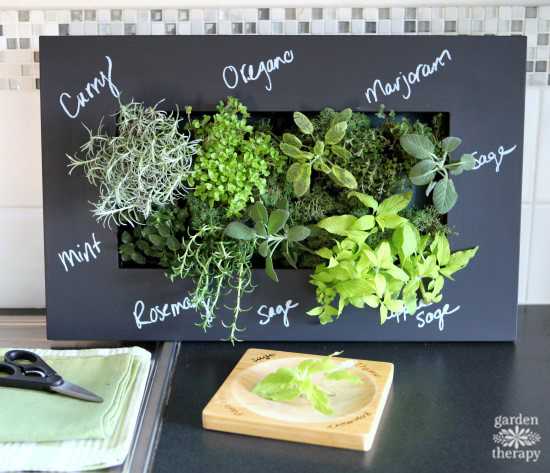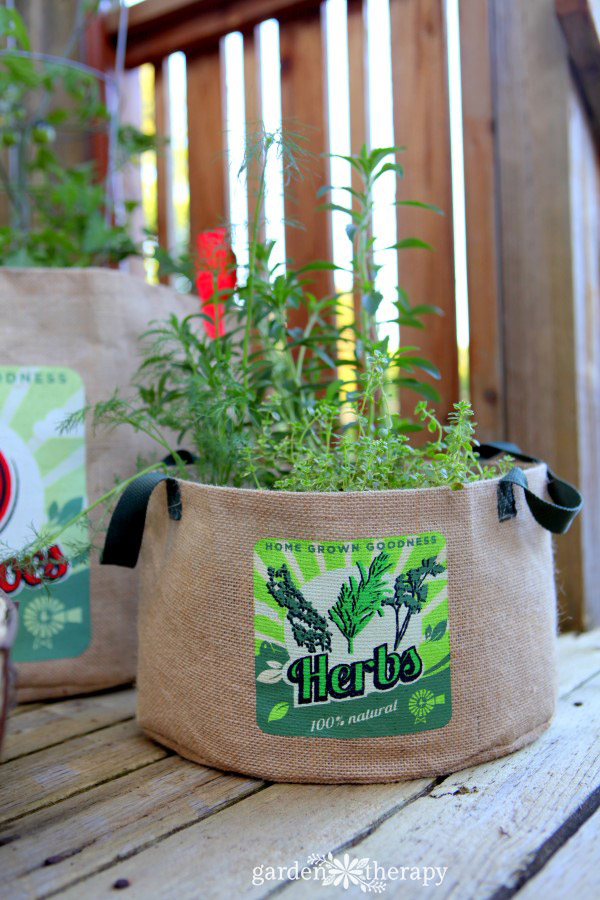Wondering what to do with herbs in winter? If you have a thriving herb garden, you can proactively protect them by employing some of these ideas. Here’s everything you need to know about how to overwinter herbs and keep them happy all year long.
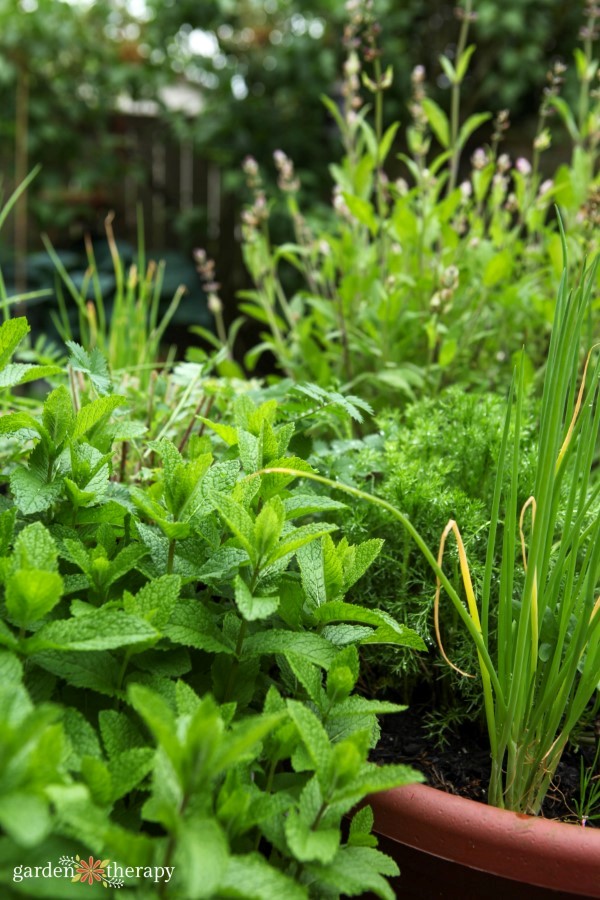
Homegrown herbs are wonderful to have on hand for culinary purposes, natural beauty recipes, and for their natural healing properties. Just because the cold season is beginning does not mean that you have to say goodbye to your herb garden.
There are many different perennial herbs, some that can remain outside completely. Many herbs can overwinter outdoors if cared for properly. You can also preserve herbs in creative ways and overwinter them indoors.
Learn how to overwinter herbs with these simple tips.
Herbs in Winter that Can Stay Outside
Some hardy herbs do well outdoors in all seasons. If you follow the care guide below, you can leave these plants outdoors and trust that they will be back once the snow thaws. Perennial herbs such as rosemary, sage, chives, winter savory, thyme, oregano, and mint can stay outdoors over the winter in many zones.
Herbs by Zone
Of course, as the weather varies greatly between different zones, so do the herbs in winter that can stay outside. Here’s a quick guide broken down by zone (read this post for more on gardening zones)
Perennial Herbs up to Zone 4
- Angelica
- Anise hyssop
- Bee balm
- French tarragon
- Garlic chives
- Lemon balm
- Lovage
- Sage
- Sweet cicely
Perennial Herbs up to Zone 5
Perennial Herbs Up to Zone 6
How to Prep Outdoor Herbs to Survive the Winter
Follow these steps to ensure that your herb garden is ready to face the elements.
Weeding
Start by removing any weeds growing up around the base of your herbs, so that they are not choked when they begin to grow again in the spring.
Pruning
Oregano, rosemary, lemon verbena, thyme, and sage can all overwinter outdoors and will benefit from a good prune in the fall. Trim away the uppermost leaves and any dead flower heads, and prune back all dead wood on the plant.
You’ll probably find that you’ve pruned away lots of usable herbs—see different ways of preserving them for use over the winter.
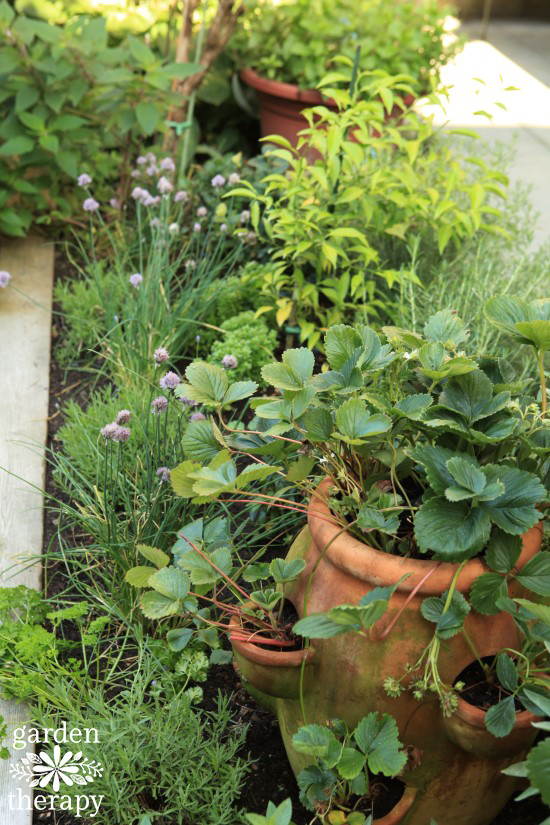
Protection
All herbs will benefit from a two-to-four-inch layer of mulch to prevent the ground from freezing and to shield them from the harsh winter cold. Some herbs will need extra coverage in the form of a burlap wrap, cardboard box, or horticultural fleece over them to keep them insulated.
Herbs in Winter that Need to be Moved Inside
Annual herbs such as basil, pineapple sage, dill, borage, parsley, nasturtium, stevia, chamomile, and lemongrass are sensitive to cold temperatures. These herbs will likely not survive the harsh outdoor conditions.
Instead of digging these up completely, try propagating them from cuttings and growing them indoors. Growing basil from cuttings is particularly easy to do.
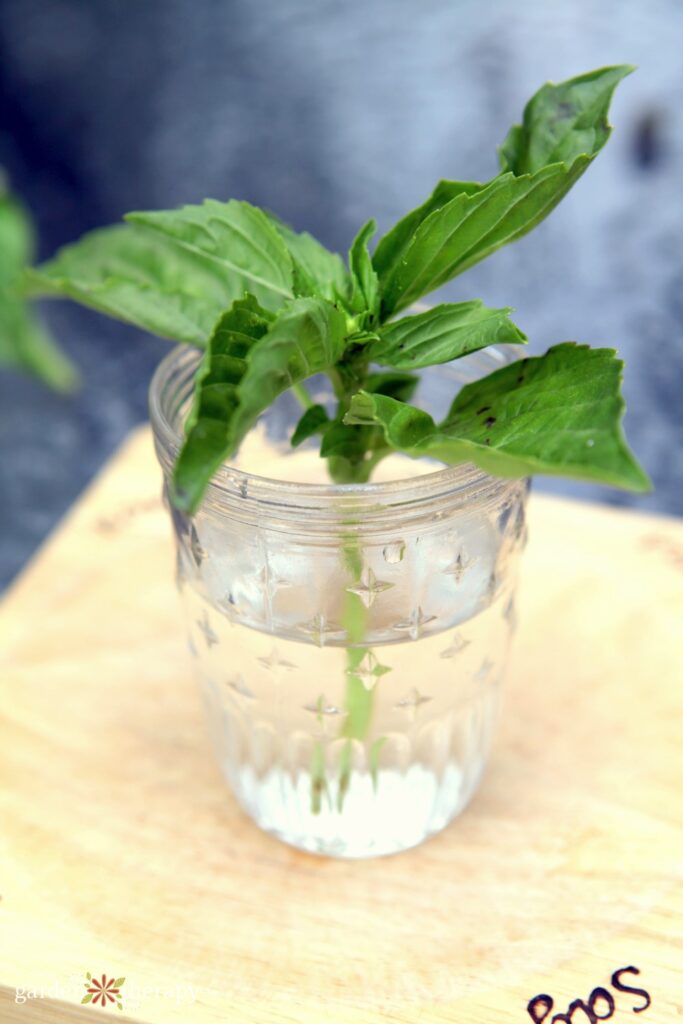
Both annual and perennial herbs can be planted in containers and brought inside before the first hard frost of the season. There are a ton of creative ways to grow herbs indoors. Not only will these plants look pretty on your kitchen windowsill or counter, but it’s a practical solution too. It is great to be able to harvest fresh herbs right from your kitchen as you are cooking!
Parsley can be difficult to dig up, as it has long roots that are easily disturbed. Dig deep beneath the plant and pot it in a container with a lot of depth, about ten inches.
Mint, thyme, and oregano are easy to dig out of the ground and take well to growing indoors.
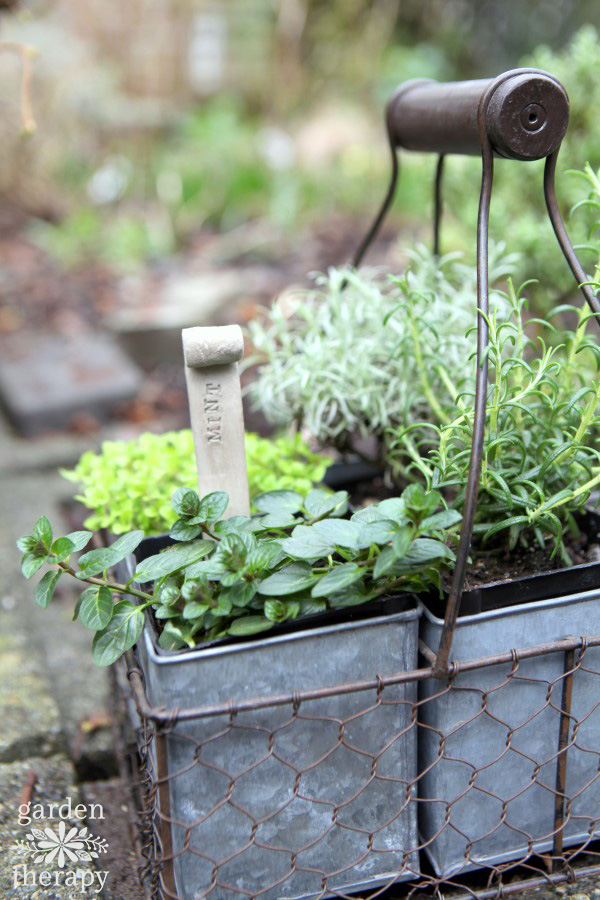
Rosemary can thrive indoors, but it can also be difficult. Your best bet is to place it in a window where it will be cool and get a lot of natural light.
Before bringing any herbs indoors, be sure to check them carefully for pests and pest damage. If you see any, spray the plants with a bit of soap mixed with water to get rid of unwelcome creepy crawlies.
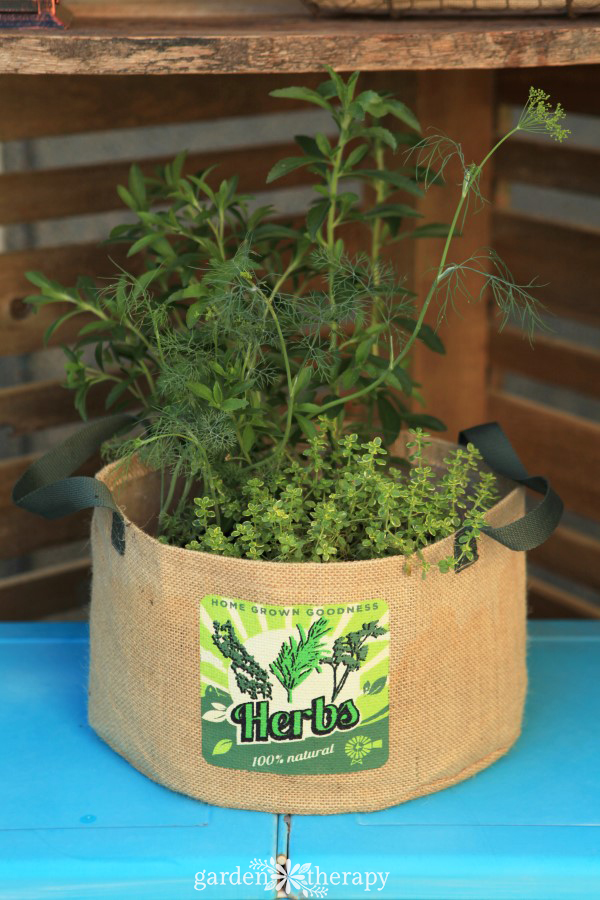
Amend Your Garden Soil
If you dig up your herbs and bring them indoors for the winter, it is the perfect time to add nutrients to the soil for next spring when you replant your herbs. Dig compost material into the soil and in the spring your bed will be richer and more nutritious, producing healthier, more prolific plants.
The good news is that amending your soil is inexpensive and eco-friendly. For my book Garden Alchemy, I spent quite a bit of time experimenting and studying natural soil amendments and found the results fascinating. I think you will, too—see my post here about how to amend soil naturally.
FAQ About Growing Herbs in Winter
Can I replant herbs that I bring inside the following spring?
Absolutely. Just remember to make the transition easy on the plant. Bring them outside when all threat of frost has passed. Leave them in their containers and allow them to adjust to being outside for a few days before planting them back into the ground.
Should I cut back thyme for the winter?
Thyme benefits from being pruned back in the fall. For all perennial herbs, you want to leave the tough woody parts of the stem behind since this is where new growth will come from. Cut off the top leaves and flowers, as well as any dead stems.
Can you overwinter basil?
Basil is considered an annual herb, so it will not survive the winter. Instead, I like to propagate my outdoor basil plant through cuttings and bring it indoors. To do this, you’ll want to cut off stems from the top of the basil plant with four sets of leaves growing.
Once cut, remove the bottom two sets of leaves from the stem and place your cutting in a cup of water. Leave in a sunny location until roots are at least 1 inch long. Then transfer your cutting into a pot of soil and keep it well watered until established.
